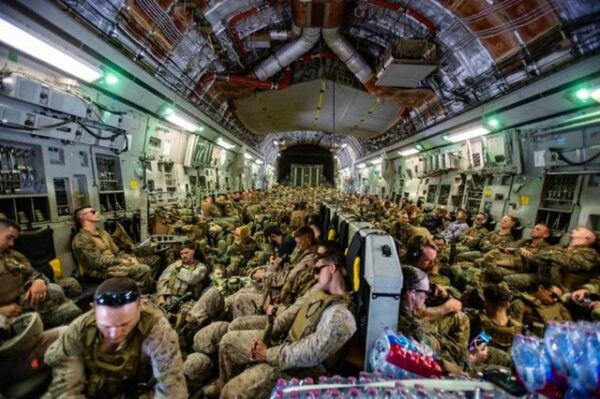On August 26, 2021, just days before the United States was set to complete its withdrawal from Afghanistan, the war’s closing chapter turned bloody. At Hamid Karzai International Airport in Kabul, where tens of thousands of Afghans were crowding the gates in a desperate bid to escape Taliban rule, a suicide bomber slipped into the throng and detonated his explosive vest. The blast killed 13 U.S. military personnel—11 Marines, a Navy corpsman, and an Army soldier—and at least 169 Afghan civilians. For a war that had lasted two decades, the attack was one of its deadliest single days, a grim bookend to America’s longest conflict.
The attack came as U.S. and allied forces carried out a frantic evacuation of American citizens, Afghan partners, and others deemed vulnerable under Taliban rule. In the chaos following the fall of Kabul on August 15, the airport had become the last redoubt of Western control. Crowds pressed against the gates, some clutching papers, others hoisting children, all pleading for passage on one of the departing flights. It was there, at Abbey Gate—a main access point manned by U.S. Marines—that the bomber struck.
The explosion ripped through the packed crowd, sending shrapnel into service members and civilians alike. Survivors described scenes of carnage: blood on the tarmac, bodies scattered in the sewage canal beside the gate, and panicked Afghans searching for missing relatives. For the Marines and medics on duty, it was a nightmare scenario—mass casualties, with limited resources and under constant threat of follow-on attacks.
Responsibility for the bombing was quickly claimed by ISIS-K, the Afghan affiliate of the Islamic State. The group had been active in eastern Afghanistan for years, carrying out massacres against civilians and battling both U.S. forces and the Taliban. For them, the airport evacuation provided both opportunity and spectacle: a chance to strike American troops and embarrass the Taliban, now newly in power. Intelligence reports had warned of a credible threat in the days leading up to the blast, and U.S. commanders had cautioned evacuees to avoid large crowds near the gates. But with time running out and flights still leaving, the crush of humanity never abated.
The American dead were young, most barely out of their teens. Some had been born after the September 11 attacks that first sent U.S. forces into Afghanistan. They had been deployed not for combat but for a humanitarian mission—screening refugees, providing security, and comforting children lifted over barbed wire. Their deaths shocked the nation, prompting President Joe Biden to bow his head in silence at the White House and later to stand on the tarmac at Dover Air Force Base as flag-draped coffins returned home. “These American service members who gave their lives—it’s an overused word, but it’s totally appropriate here—they were heroes,” Biden said.
For Afghans, the toll was far higher and the grief incalculable. Entire families were wiped out in the blast. Hospitals in Kabul overflowed with the wounded, many of them children. Those who survived faced a grim future: the gates of escape were closing, and the Taliban now held the capital. The attack deepened the sense of betrayal among Afghans who had worked alongside Americans for years and now found themselves stranded.
The bombing also reignited debates in Washington over the withdrawal itself. Critics argued that the chaotic evacuation and reliance on Taliban checkpoints had created precisely the vulnerabilities ISIS-K exploited. Supporters of the pullout countered that the attack only underscored the futility of staying longer, given the intractable violence of Afghanistan’s militant groups. Within days, a U.S. drone strike targeted what officials claimed was an ISIS-K planner in Kabul, but the strike itself killed ten civilians, including seven children, further staining the withdrawal’s final hours.
In the years since, the Abbey Gate bombing has come to symbolize both the sacrifice of the U.S. troops who remained until the last flight departed and the devastating human costs borne by Afghans. It also served as the first moment where popularity in Joe Biden’s early tenure really began to erode. During his State of the Union, a father of one of the Marines killed protested the president from his seat in the Capitol.
In the years that followed, Congress initiated major investigations and a federal watchdog issued a scathing critique that has led for calls to reform






